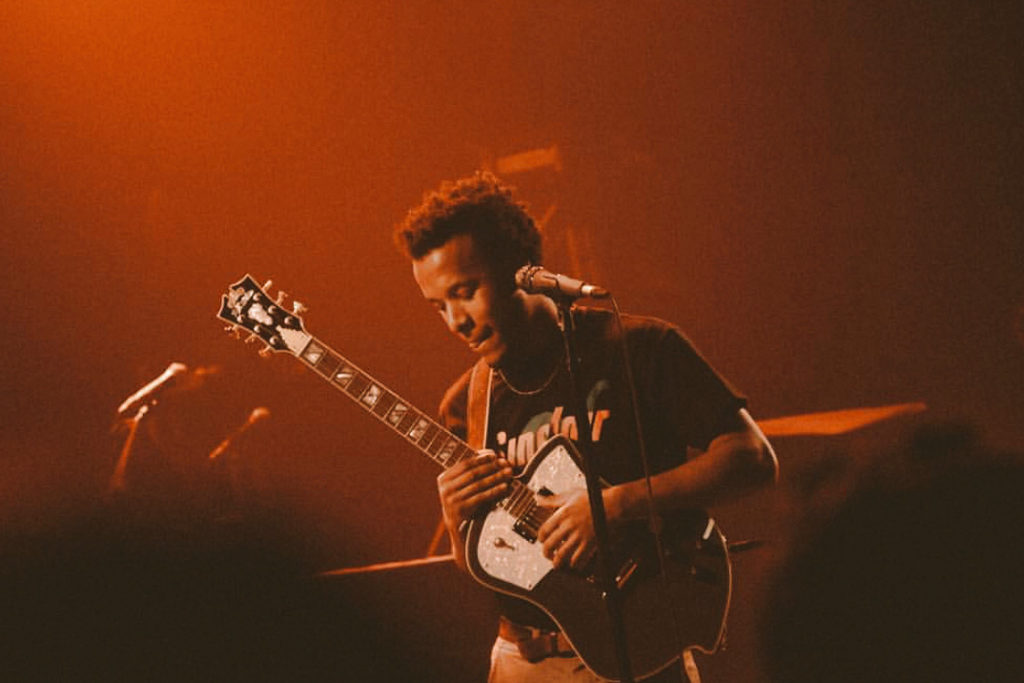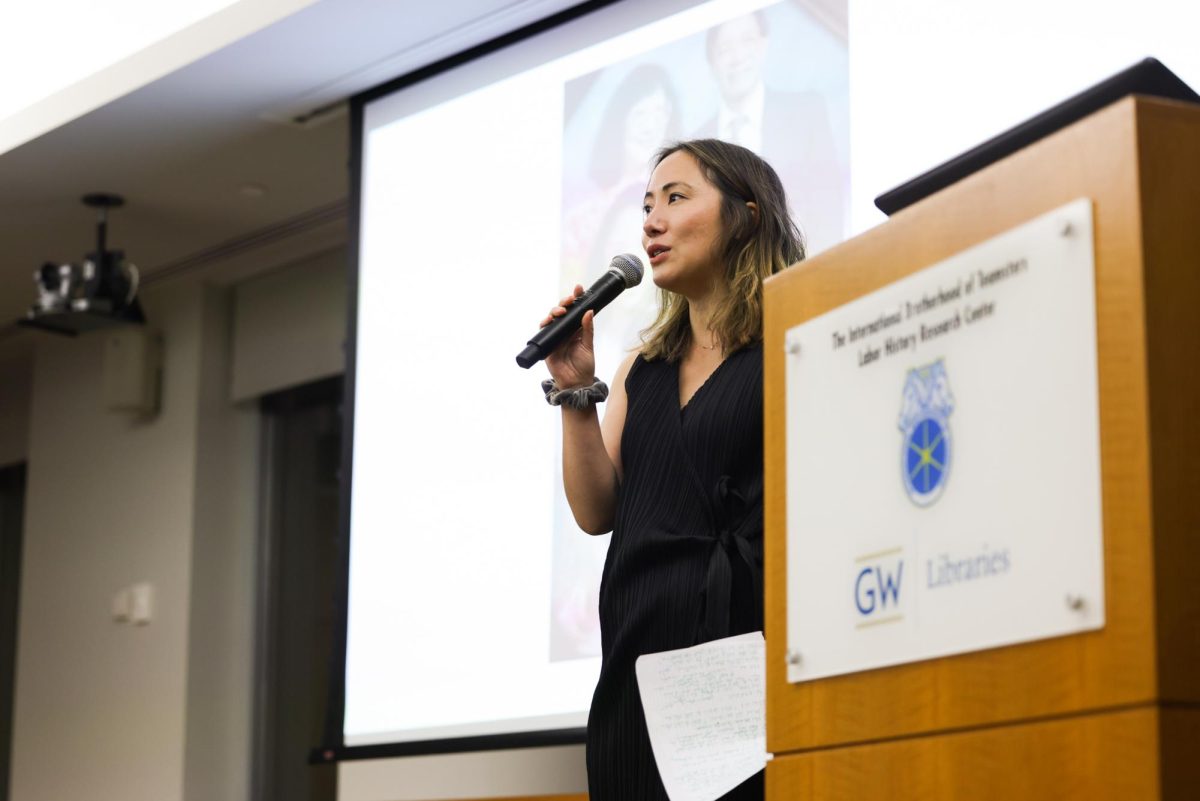A GW alumnus and musician will make a comeback to D.C. to play at the All Things Go Fall Classic this weekend.
Joshua Karpeh, an R&B musician by the stage name Cautious Clay, has had an exciting three years post-graduation: quitting his job, moving to New York and landing jam sessions and songwriting credits with artists like John Mayer.
“It’s definitely been a trippy year to say the least,” Karpeh said.
The artist will perform during Sunday’s lineup of the two-day festival at Union Market. The festival – which was started by another GW alumnus, Zack Friendly, in 2014 – will feature other acts including Betty Who, Carly Rae Jepsen and Maggie Rogers.
Karpeh graduated in 2015 with a bachelor’s degree in international affairs and minored in jazz studies. He played the flute and saxophone at GW and learned to produce music using computer software like Ableton. This translated into his solo project, which features elements of improvisational jazz within sophisticated pop and R&B tunes. On tracks like “French Riviera” and “Cold War,” plinking drum machines and plucked guitars give way to washes of sweet multitracked vocals.
“My approach to music has always been kind of organic and very feel-oriented and that’s why jazz was so fascinating to me at first because the entire thesis and the entire perspective of jazz is to create things from an improvisational perspective,” Karpeh said. “If you take that approach and you apply it to pop music, or R&B or soul, it’s more of a lifestyle mindset than it is a genre.”
Karpeh lived in D.C. for a year after he graduated before moving to his current residence in Brooklyn, N.Y. Living in the city allowed him to explore a dynamic and “vast” music scene of creators trying to find their own groove and connect with the likes of Billie Eilish, he said.
After two years of working at a large real estate company, Karpeh quit his job last year to pursue music full time.
More popular artists began to notice his work early on when they came across his work online, he said. While he remixed other artists’ tracks and posted them to SoundCloud and other websites, he said he was also tooling with his own songs.
Karpeh released his latest EP, “Blood Type,” back in February and a new track, “Crowned,” in August. He is already onto larger projects, including an upcoming EP that will feature a collaboration with John Mayer.
“I could never say that I would’ve expected to have jokes with John Mayer in literally less than a year,” Karpeh said.
Occasionally Karpeh switches gears to work on songwriting and has worked on tracks with pop singer Alina Baraz. After Karpeh’s D.C. set, he will perform at festivals in Belgium and Paris before playing more shows in the Pacific Northwest, opening for R&B singer Gallant.
The artist has also been featured on Khalid’s track, “Floating,” and written songs with musician Ryan Tedder, the lead vocalist in the band OneRepublic.
But Karpeh said he considers himself more of an artist and performer than a songwriter, as he said writing tracks can be more “fair-weather” and less consistent than just getting on stage. He credits his music discipline to professors in the music program, like Peter Fraize, along with a childhood flute teacher who helped him perfect the instrument.
“I had a really incredible flute teacher who very much influenced my perspective on the instrument and my overall interest in music,” Karpeh said. “I think he very much opened up my perspective on what creating music could be and he was really a pioneer as an artist.”
Karpeh said working with other musicians at GW was his “greatest experience” and he still remembers practicing saxophone and flute during “Jazz Jams” that the department would host every Friday.
But GW restricted music classes to majors and minors, shrinking the department by at least 40 percent, in 2015 at about the same time Karpeh graduated.
He said cuts to the department resulted in laying off some of his favorite professors. Karpeh said he hasn’t checked out music from the GW scene since.
“It was pretty upsetting for me, and partially why I haven’t really been super involved,” he said. “It kind of felt like a stab in the back for what I was doing at the time, and what I felt like the music department was contributing to the campus.”




